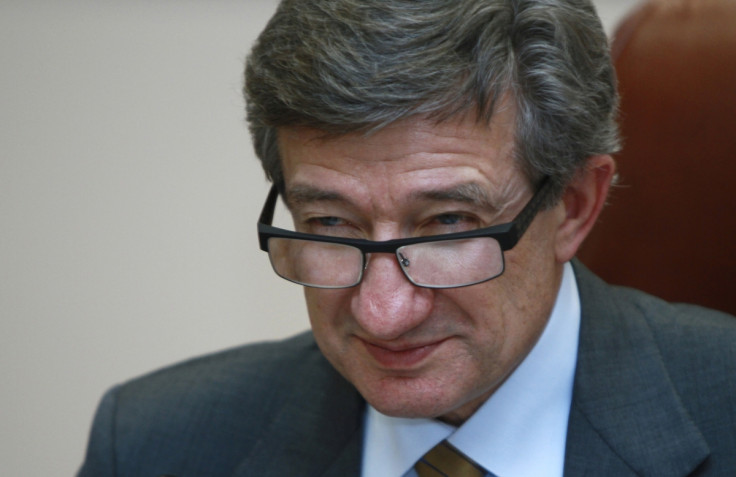Serhiy Taruta: Billionaire Donetsk Governor Ousted from Office by Pro-Russia Separatists Speaks Out

Serhiy Taruta, the governor of Ukraine's combustible Donetsk region and a billionaire industrialist, has spoken of his role at the centre of a geopolitical power struggle between Russia and the West in eastern Ukraine.
Taruta said that his regional administration remains in talks with pro-Russian militants who have overrun administrative buildings and called for their own referendum following Crimea's annexation last month.
In an interview with the Guardian, the Financial Times and the Washington Post, Taruta opened up about his view on Russian President Vladimir Putin's intentions in eastern Ukraine, the upcoming Presidential elections and the separatists that have occupied his office.
"There wasn't exactly a queue for this post. In fact there were no other candidates. I never dreamed about doing this," he said in the interview.
Taruta - who owns a private jet and his own armoured car - spoke of Putin's claim that Russia would intervene in Ukriane if Russian speakers were threatened in any way and sarcastically welcomed the Russian premier to help Ukrainians.
"If he so much likes and respects the Russian-speaking population of Ukraine, that's fine," he said. "He can come and give us economic and social help."
He was adamant that the upcoming Ukrainian Presidential election on 25 May would still go ahead despite ongoing unrest in the country's east.
"The presidential election will take place. I will do everything for that, despite any possible threats," he said confidently.
Number of protesters "about 300 people"
Moving on to the separatists that have declared an independent republic from Kiev and occupied his Donetsk office, Taruta states that the pro-Russian attempt to seize regional power is illegal.
"Anyone can say 'I am the Pope; that doesn't mean the whole conclave will follow him and all the priests of the world," he said in the interview.
"So you have to approach this as an attempt at a seizure of power, which is a deepest violation of the law.
"The number of protesters is actually quite small," he asserts, estimating the number of separatists at "about 300 people".
The biggest problem in Taturov's eyes is that the unrest has allowed "criminals" to roam free and commit illegal acts unpunished.
"We have criminals, and semi-criminals, carrying out killings, robbery, and pillaging," he said.
On his own safety, Taturov claimed that he is for "peace" and not "war".
"There is a physical threat. I'm on a list. But I'm a peace guy, not a war guy. I can only use my words and intellect to stabilise the situation."
Taruta concludes that there is something bigger at play in the Ukrainian unrest, a feeling that can not be directed by bribery or propaganda from either party.
"People in the Maidan weren't there because they were paid. Nobody was in it for money. They were ready to die because of an idea."
© Copyright IBTimes 2024. All rights reserved.






